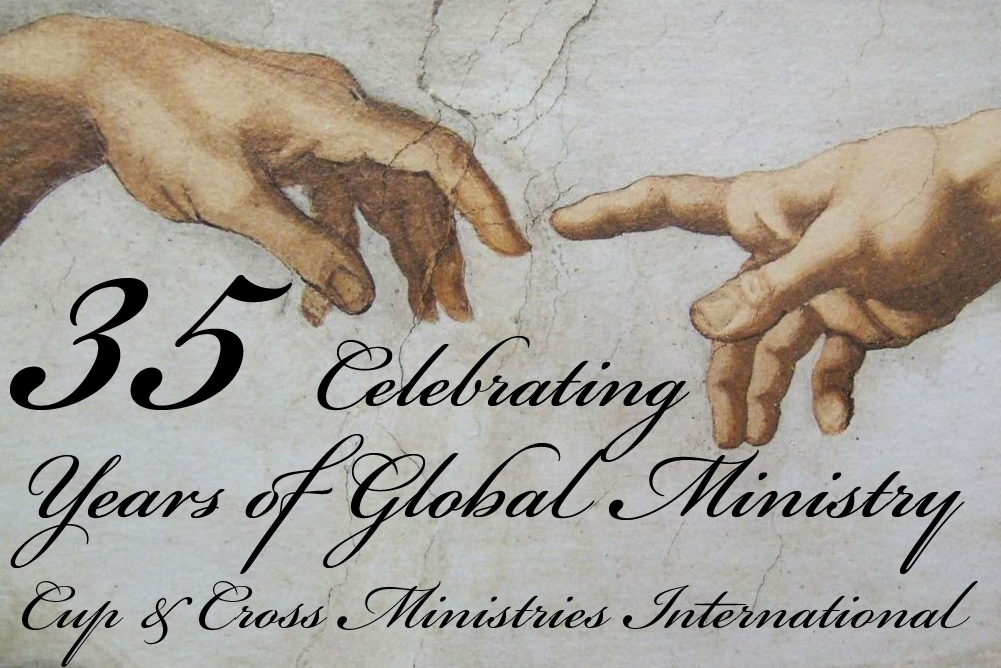Intro to Digital Discipleship
1. The Church in a Digital Age – Bobby Gruenewald
Digital Discipleship has emerged as one of the most vital conversations of our time, reshaping how the church understands evangelism and spiritual growth in the digital era. Bobby Gruenewald, pastor, innovator, and founder of the YouVersion Bible App, has been one of the pioneering voices in this shift. He introduced the phrase “Digital Mission Field,” urging churches to recognize that billions of people now inhabit online spaces in the same way they inhabit physical ones. For Gruenewald, platforms like apps, livestreams, and social media are not distractions from real ministry but rather the new terrain where discipleship must occur. This framing challenges the church to step boldly into digital environments with intentional strategies for reaching, teaching, and discipling believers.
2. Beyond Broadcasting to Belonging – Nona Jones
The rise of online platforms has led many churches to experiment with livestreaming sermons and creating digital worship spaces. However, Nona Jones, global thought leader and Head of Faith-Based Partnerships at Meta (Facebook), warns that simply broadcasting content is not enough. She introduced the concept of a “Digital Discipleship System,” a framework where digital ministry must intentionally move people from passive consumption toward meaningful community and spiritual transformation. For Jones, true Digital Discipleship is about cultivating relationships, accountability, and mentorship online—elements that mirror the biblical model of discipleship but are uniquely expressed in digital environments. Her work reframes technology from being a tool of convenience into a pathway for authentic discipleship.
3. Reimagining Mission in Virtual Spaces – Dr. Heidi Campbell
As the boundaries between real and virtual life continue to blur, Digital Discipleship must be reimagined within the structures of digital culture. Dr. Heidi Campbell, a leading scholar in digital religion, introduced the influential concept of “Networked Religion.” This term captures how faith practices today are decentralized, interactive, and shaped by online networks rather than traditional institutions alone. Campbell’s research demonstrates that believers no longer see digital life as separate from spiritual life; rather, they integrate prayer, community, and identity across both spaces. Within this framework, Digital Discipleship becomes not only the transmission of teaching but also the cultivation of spiritual practices that thrive in relational and participatory digital ecosystems.
4. From Technology to Theology – Craig Groeschel
The conversation on Digital Discipleship often begins with the practical use of tools, yet it cannot stop there—it must extend to theological reflection. Craig Groeschel, pastor of Life.Church, helped popularize the idea of “Church Online,” arguing that true spiritual formation can occur in digital contexts if relationships and engagement are prioritized. For Groeschel, digital tools are not substitutes for the church but extensions of its mission. The model of “Church Online” demonstrates that when technology is harnessed with intentionality, it can become a conduit for prayer, worship, accountability, and discipleship. Groeschel’s insights remind us that Digital Discipleship is less about technology itself and more about how faith communities use it to pursue authentic spiritual transformation.
5. Empowering the 15/50 Window – Dr. Dony K. Donev
Demographics reveal that the majority of digital users fall within a unique global category. Dr. Dony K. Donev, missiologist and cultural researcher, introduced the term “15/50 Window” to describe individuals aged 15–50, who make up more than half of the world’s internet users. Donev argues that this age group represents the most strategic mission field of the twenty-first century. In this context, Digital Discipleship is not an optional ministry innovation but an urgent necessity. To reach the 15/50 Window, the church must prioritize digital platforms as primary spaces for evangelism, teaching, and discipleship. Donev’s work highlights that the effectiveness of Christian mission today will be measured not only by physical gatherings but also by how faithfully the church disciples people within digital spaces.
6. Digital Presence as Spiritual Practice – Dr. Darrell Bock
Discipleship is not only about what Christians believe but also about how they live—and today, much of that life unfolds online. Dr. Darrell L. Bock, theologian and cultural engagement expert, uses the phrase “Digital Footprint of Faith” to describe how believers’ online presence testifies to their spiritual identity. Every interaction, post, and digital conversation can either strengthen or weaken the credibility of Christian witness. In this sense, Digital Discipleship calls believers to intentionally cultivate their digital presence as part of their spiritual formation. Bock’s insights remind us that discipleship in the digital era is not confined to sermons or programs; it extends to everyday practices of faith lived out visibly in digital environments.
The Digital Ecclesia: A Theological Exploration
In the contemporary ecclesial landscape, the Seventh-day Adventist Church stands at a pivotal juncture, grappling with the imperatives of the Great Commission in a digital age. The biblical mandate to “go into all the world and preach the gospel to all creation” (Mark 16:15, NIV) resonates profoundly in an era where approximately 42% of the global population engages with social media, as noted in mid-2019 data. This thesis posits that digital communications, far from being a peripheral tool, represent a divinely ordained extension of the apostolic mission, akin to the School of Tyrannus in Ephesus where Paul’s teachings “went viral” through oral dissemination (Acts 19:8-10, NASB). Drawing from personal ecclesial campaigns and broader theological reflections, this essay argues that transforming digital influence into global impact necessitates a paradigm shift from linear evangelism models to holistic, empathetic digital discipleship. By integrating scriptural precedents, empirical evidence from church initiatives, and case studies, we explore how the Church can leverage digital tools to reach the “unreachable,” foster cultural empathy, and cultivate disciples who embody Christ’s relational ethos. This analysis underscores the theological imperative for strategic digital engagement, ensuring the gospel permeates intersecting cultures in both virtual and physical realms.
The Theological Foundation of Digital Influence as Missional Extension: Theologically, digital communications echo the incarnational ministry of Christ, who met people where they were, adapting to their cultural paradigms (1 Corinthians 9:19-23, NASB). The text under examination illustrates this through a 2016 campaign for the “Your Best Pathway to Health” mega-health clinic in Beckley, West Virginia, Appalachia—a region stereotyped as technologically disconnected. With a modest $200 budget, targeted Facebook ads reached 200,000 users within a 50-mile radius, outperforming traditional media like flyers and newspapers in exit surveys. Testimonials revealed that online ads prompted offline sharing: family members and friends, not on social media, were informed and attended, embodying the Samaritan woman’s evangelistic zeal (John 4:28-30, NIV).This case study provides empirical proof of digital tools’ amplification power. A New York Times study cited in the text affirms that 94% of people share online content to improve others’ lives, aligning with human nature’s propensity for communal benevolence. Theologically, this mirrors the early Church’s organic spread: Paul’s stationary ministry in Ephesus disseminated the gospel across Asia via travelers who “liked and shared” his message verbally, reaching Jews and Greeks alike (Acts 19:10). In modern terms, social media serves as the “modern School of Tyrannus,” a digital agora for idea exchange. Evidence from the Beckley campaign demonstrates that targeting the connected 42% activates networks bridging to the 58% offline, challenging assumptions of digital irrelevance in underserved areas. The author’s personal rebuttal to a friend’s skepticism—rooted in data over presumption—highlights ecclesial resistance to innovation, yet the results validate a Pauline strategy scaled by technology: reach the reachable to evangelize the unreached.
With members spanning nations, tribes, and tongues, digital tools empower diaspora connections. For isolated communities, the text invokes the Holy Spirit’s sovereignty, recalling Mark 16:15’s call not as human achievement but divine partnership. This theological framework—evangelism as relational sharing—counters secular digital marketing’s transactionalism, emphasizing discipleship’s transformative ethos. The Beckley initiative’s success, where social media rivaled word-of-mouth referrals, proves that digital influence transcends virtual boundaries, fostering real-world attendance and healing, thus fulfilling the Church’s wholistic mission of body and soul.
From Linear Paths to Journey Loops: Reimagining the Seeker’s Spiritual Pilgrimage
Traditional evangelism’s linear funnel—from awareness to membership—mirrors outdated marketing but falters in a post-modern, multicultural world of “intersecting cultures.” The text critiques this model, advocating a “Seeker’s Journey” with non-linear loops: “See” (Awareness), “Think” (Consideration), “Do” (Visit/Engage), “Care” (Relationship/Service), and “Stay” (Loyalty/Membership). This systems-thinking approach, drawing from Margaret Rouse’s definition of interrelated elements achieving communal goals, reflects the Holy Spirit’s dynamic work, not mechanistic conversion.
Proof emerges from the modified digital funnel, integrating traditional and digital strategies. Exposure via organic traffic, ads, and word-of-mouth feeds discovery, where seekers consume content and assess relevance. Consideration evaluates “digital curb appeal,” leading to engagement—visits, Bible studies, or prayer requests. Relationship-building through empathetic follow-up and text evangelism sustains loyalty, looping disciples back as creators and engagers. A case study implicit in the text is the author’s transition from secular marketing to church application: pre-clinic prayers yielded testimonies of digital-driven attendance, with social media second only to personal referrals. This evidences the funnel’s efficacy, where engagers span touchpoints, building bridges from online anonymity to in-person commitment.
Theologically, this resonates with Paul’s adaptability: “I have become all things to all people, that by all possible means I might save some” (1 Corinthians 9:22, NIV). In a world of migrants and global connections, even static communities like the author’s Appalachian hometown—lacking cell reception yet tied via satellite—illustrate digital reach. The text’s personal anecdote of introducing Adventism to parents through conversations exemplifies empowering insiders: migrants from remote areas, digitally connected, share culturally attuned gospel messages upon return visits. Data from Pew underscores Adventism’s diversity as a missional asset, yet untapped digitally. The journey loops counter assumptions of homogeneity, promoting cultural empathy—empowering community members as evangelists, much like the Ethiopian eunuch’s self-directed study via Philip’s guidance (Acts 8:26-40). By magnifying friendship evangelism, digital tools enable 24/7 kingdom pursuit, measuring success not by pew counts but disciple formation, echoing Jesus’ relational model over programmatic faith.
Cultivating Cultural Empathy: Audience Personas and Generational Dynamics in Ecclesial Outreach
Effective digital evangelism demands “cultural empathy,” expanding culture beyond geography to encompass platforms, generations, and identities. The text warns against “Adventist-speak” barriers, urging internal (church members) versus external (community) vernacular distinctions. Personas—fictional archetypes blending demographics, needs, and values—humanize audiences, fostering resonance. For instance, “Bryce,” a 17-year-old Hispanic Adventist college aspirant, embodies challenges like rejection and doubt, valuing diversity and mentorship. Messages like “We are all adopted into God’s family” address his core, proving personas’ evangelistic utility.Empirical evidence from surveys and analytics validates this: deeper connections via shared experiences transcend surface demographics, yielding loyalty. The text’s framework—surface (age, location) to deep (needs like spiritual community, justice)—aligns with 1 Corinthians 9’s missional flexibility. A key case study is Generation Z (1997-2012), the least religious cohort per Pew, with 35% unaffiliated and short attention spans favoring visuals over text. Yet, 60% seek world-benefiting work and 76% environmental concern, presenting opportunities for a “social gospel” of action. The iPhone’s primacy in their historical narrative underscores technology’s reshaping of connection, demanding Church innovation. Millennials, similarly departing, highlight the urgency: without adaptation, institutions risk obsolescence, as W. Edwards Deming quipped, “Survival is not mandatory.”
Theologically, this echoes Ecclesiastes 1:9-11’s cyclical generations, analyzed in Pendulum by Williams and Drew. The current “We” swing (peaking 2023) favors authenticity, teamwork, and humility over “Me” individualism. Examples include L’Oréal’s slogan shift from “I’m worth it” to “You’re worth it,” and the U.S. Army’s “Army Strong” emphasizing collective resilience. Gorgeous2God, a youth ministry tackling rape and depression candidly, exemplifies “We” values: 45,000 social followers and 20,000 annual website visitors stem from transparent storytelling, disarming via “self-effacing transparency.” This counters Church sluggishness, empowering youth as generational evangelists. By unpacking intersecting cultures—e.g., immigrants versus transplants—the Church bridges gaps, fulfilling Revelation 7:9’s multicultural vision. Personas and empathy ensure messages resonate, turning digital platforms into loci of divine encounter
Strategic Implementation: Tools, Teams, and Metrics for Ecclesial Digital StewardshipDigital tools—social media, email, podcasts, SEO—democratize gospel dissemination, yet require strategic stewardship. The text defines them as binary-processed devices enabling instantaneous global connection, integral for local mission in secular North America. With 1.2 million Adventists across 5,500 churches, untapped potential abounds: digital amplifies relationships, revealing felt needs for targeted service.
The Digital Discipleship and Evangelism Model integrates creators (content packaging), distributors (promotion), and engagers (relational dialogue), holistically scaling traditional evangelism. A sample Digital Bible Worker job description illustrates: responsibilities include content calendars, ads, livestreamed studies, and mentoring, bridging digital to in-person. Case evidence: youth spending 9-18 screen hours daily affords entry at their comfort, anonymity fostering trust.
Leadership must audit platforms, analyze data, and set KPIs—activity (posts), reach (impressions), engagement (shares), conversion (baptisms), retention (testimonials). The “Rule of 7” mandates multi-channel reinforcement amid 3,000 daily ad exposures. Budgets scale: $300 locally yields community awareness; $3,000 nationally drives impact. Batch-scheduling via calendars ensures proactivity, as in the Beckley campaign’s data-driven targeting.
Theologically, this stewards talents (1 Corinthians 12), empowering youth and “social butterflies” in multi-generational teams. Training counters silos, ensuring seamless online-offline continuity. Metrics prioritize kingdom growth over metrics, echoing Jesus’ parables of patient sowing (Mark 4:26-29). By serving needs first—”People don’t care how much you know until they know how much you care”—digital strategies build trust, inviting gospel response.
Conclusion: This ecclesial theological inquiry affirms digital influence’s transformative potential for global impact, rooted in scriptural relationality and evidenced by campaigns like Beckley. From journey loops to empathetic personas, strategic tools empower the diverse Adventist body to fulfill Mark 16:15 digitally. Challenges—assumptions, generational shifts—yield to Holy Spirit-led adaptation, as Paul’s Ephesian model scaled virally. Churches must audit, train, and budget intentionally, measuring disciple depth over breadth. Ultimately, digital evangelism incarnates Christ’s empathy, turning virtual connections into eternal kingdom harvests. As we commit to two years of faithful sharing—like Paul—the gospel will proliferate, proving no limitation on the Spirit in our hyper-connected age. The Church, as movement not institution, thrives by embracing this digital mandate, ensuring every nation hears the good news.
9/11 REVERSAL: Prophetic Restoration of a Nation and the Glory of God
In 1994, as a prophetic warning to the nation some seven years before the 9/11 attacks, Dr. David Franklin wrote “A Call to Righteousness: Impending Judgment.” Drawing conclusions from Ezekiel’s chapter 12 desolation, destruction, dispersion, despair and prophetic hope in chapter 14, he warns that:
(1) When a nation persists in violence, the Sovereign Lord confronts and holds responsible
(2) When a nation forgets God, He allows for times of repentance
(3) If repentance is ignored, God will expose and execute judgment on an unfaithful nation.
The book continues with a call for international righteousness (p. 10) and a critique of the debt-free myth proclaiming a time of economic shift (p. 11-12). Remember, this warning was written two decades before anyone in America had mentioned foreclosure, crises or global economic crises. But my favorite chapter still is the interpretation of Ezekiel’s vision of the departure of the Glory of God (p. 20-21).
 I read this book back in 1999 and frankly had forgotten about it until 2011 when, at a young ministers training camp in the mountains of Bulgaria, we experienced what we consider the most genuine appearance of the Glory of God in our whole ministry. We wrote about it then and presented our observation at the 2012 Missions Conference at the Good Shepherd Church of God inPahokee,FL. The four points of our observation carry a tremendous prophetic resemblance to what Dr. David Franklin had proclaimed in his book 18 years ago:
I read this book back in 1999 and frankly had forgotten about it until 2011 when, at a young ministers training camp in the mountains of Bulgaria, we experienced what we consider the most genuine appearance of the Glory of God in our whole ministry. We wrote about it then and presented our observation at the 2012 Missions Conference at the Good Shepherd Church of God inPahokee,FL. The four points of our observation carry a tremendous prophetic resemblance to what Dr. David Franklin had proclaimed in his book 18 years ago:
(1) Every time God renews His covenant with His people, He shows His presence.
(2) We know that God is present in the covenant, because He shows His glory. It happened to Moses and his generation. And it also happened to Solomon several hundred years later.
(3) When a generation looses the vision of the Glory of God, God begins renewing His covenant again with a new generation.
(4) God is not satisfied with a people who know the signs and the blessings of the covenant. He rests not until He is revealed as the God of the covenant.
First Day of School in Bulgaria
Never Forget
The 50/20 Principle Reexamined
At the final resolution of the Biblical story of Joseph, Genesis 50:20 states “you intended to harm me, but God intended it for good.” This statement of God’s faithfulness to complete a vision He had given, is called the 50/20 principle.
Recently, I came by an internet article on the 50/20 principle. In its development, the author brought a series of exclusive facts from the life of Joseph, showing the application of the 50/20 principle in an almost-vendetta-like context. The principle was then used in an ecclesial context where it was pointed out to the reader that it will work regardless of the circumstances and with very little concern of context and intent. Such conclusion was unacceptable regardless of if it was based on a personal experience or a limited understanding of the Spirit of the Bible.
These thoughts bid me to return again to the Genesis text and to reexamine the 50/20 principle in light of the present reading. Fortunately, the 50/20 principle is much more than a vendetta against people in the church that has done us wrong. It is a principle for reconciliation and unity within the family of God. Looking closely into the Biblical text one must notice that the 50/20 principle exists only in a particular context clearly described by the author of Genesis. This context consists of two other principle, which I will call the 50/19 and 50/21 principles. The following five conclusions then could be made by reading Genesis 50:19-21 and considering the context of the 50/20 principle:
1. Corporative Application: The 50/20 principle is not about one person alone. In other words, it was not God’s personal vendetta on Joseph’s behalf to bring Jacob’s sons before him in humility. God had a much higher plan. He intended to preserve the Hebrew nation in Egypt in the seasons of famine until the time of the Exodus. For this very reason Joseph had to suffer and what his brothers did was an undividable part from the plan God had for his life. Similarly, Christ suffered on our behalf and His suffering and crucifixion was the very plan of God for our redemption. Yes, suffering is bad, but it is redemptive and God uses it to bring us closer to him. Once we recognize this Biblical truth, we will never have to vindictively ask God to punish the ones who do wrong against us.
2. Context Application: The 50/20 principle cannot exist without the 50/19 and the 50/21 principles regardless of the interpretation which is applied to the text. The 50/20 principle was simple meant to exist that way – together with 50/19 and 50/21 and never separate from them.
3. Pre-text Application: The pre-text application is included in the 50/19 principle (Genesis 50:19). The 50/19 principle is an “against-control” principle. It requires that we let go and let God. The 50/20 principle can be applied only after the 50/19 principle has been put in action. In other words, we cannot attempt to control the situation and expect God to protect us. He will only do so, after we admit that it is not our battle and it is not in our power alone to bring His plan for our lives to reality.
4. Unity Application: The 50/20 principle is about forgiveness – not vengeance. God applies it in our lives only when we are ready to forgive and reconcile with others. Holding grudges and desiring or attempting personal vengeance only disables the 50/20 principle.
5. Post-text Application: The post-text application is included in the 50/21 principle (Genesis 50:21). It clearly shows that the 50/20 principle is about keeping forgiveness between the people thus bringing continuous (not momentous) unity in the community.
In conclusion, the 50/20 principle has nothing to do with the ego and everything to do with the ego-sacrifice. It is not that through this principle God brings revenge for our pain and suffering, but He uses them to bring His corporative plan for the whole ecclesial community into reality. Once having realized that, we will look at the wrong doing of others and at our personal suffering in a different way. And perhaps, we will look at the suffering of others cause by us in a different way as well …
Celebrating 35 Years in Global Ministry

























